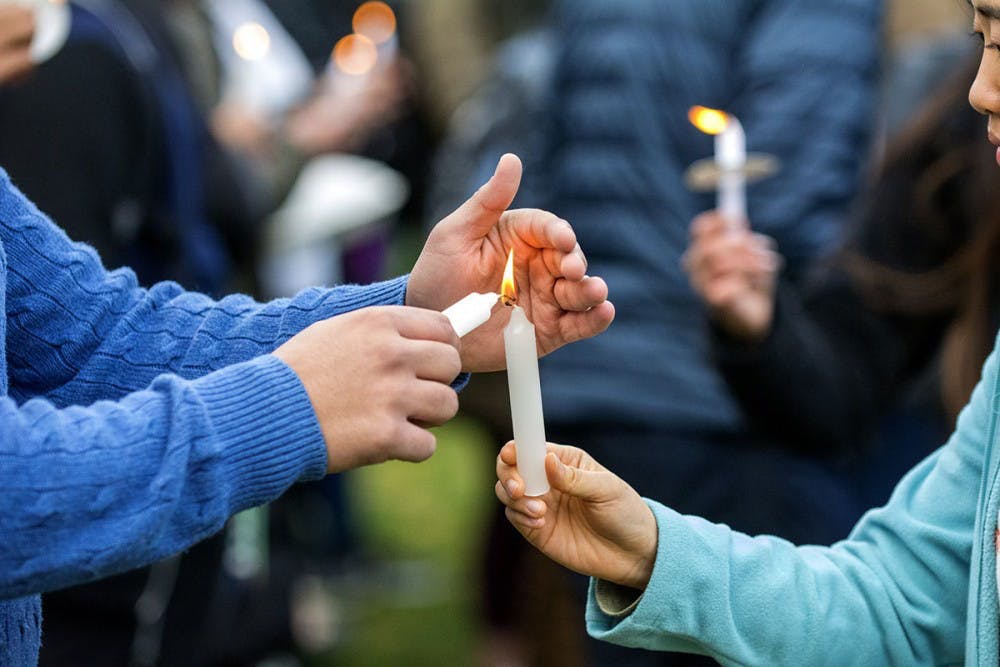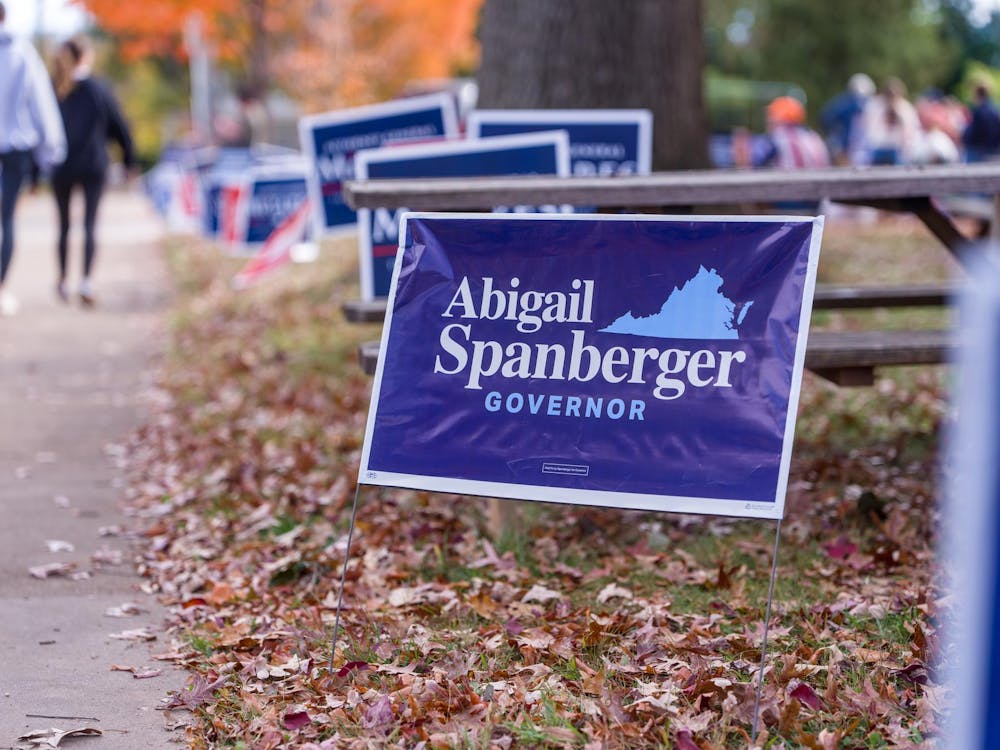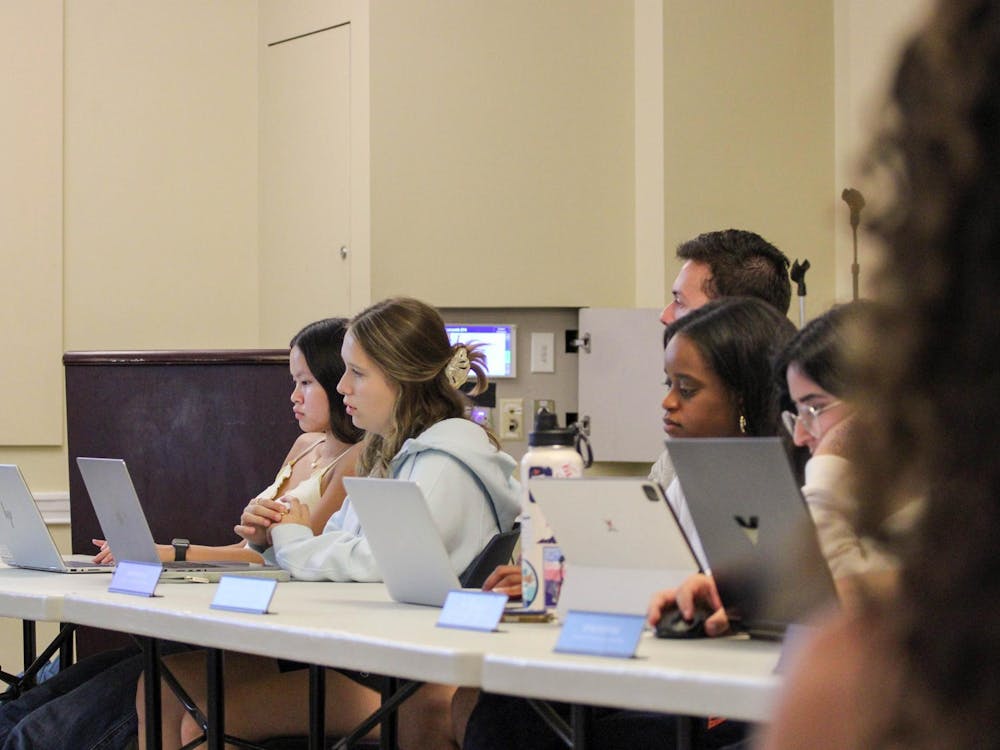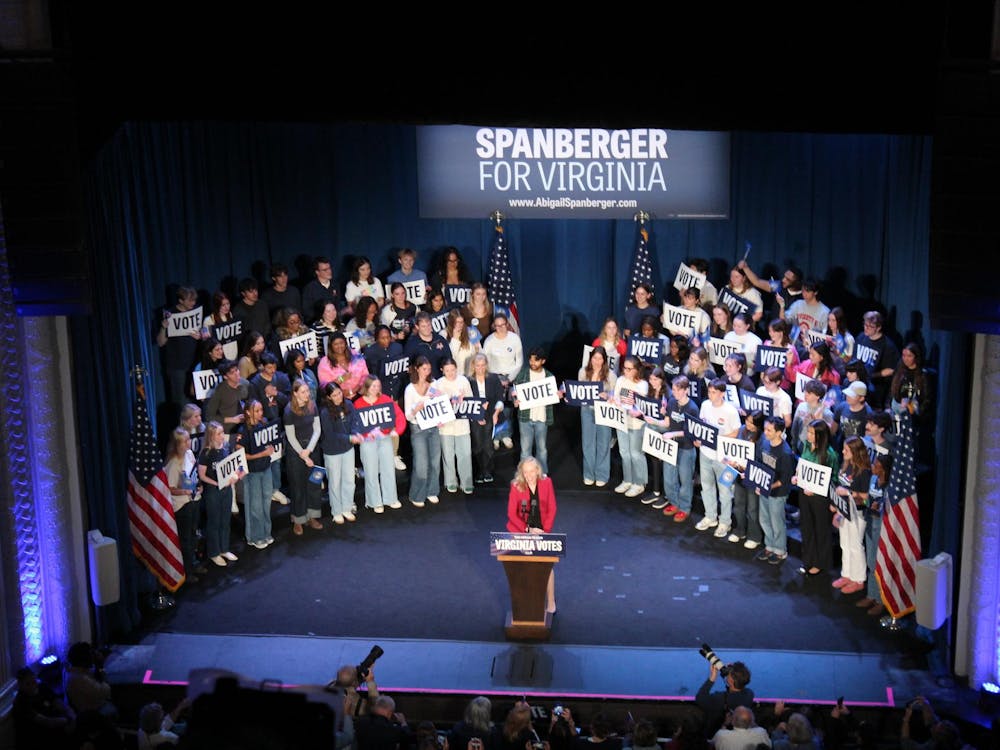Several members of student political organization University Democrats requested their dues be returned after the group signed on to the U.Va. Apartheid Divest referendum, which advocates for the University to divest from companies “engaging in or profiting from the State of Israel’s apartheid regime and acute violence against Palestinians.” According to these members, the Contracted Independent Organization violated its own constitution by making the decision to take a public stance on the referendum without a general body vote. The organization’s executive board said that while dues cannot be returned, members are free to leave the group as they please.
The University Democrats was one of 29 student organization signatories featured in a social media post announcing the aims of the newly-formed U.Va. Apartheid Divest coalition. According to the account, 40 organizations comprising alumni, student and faculty groups signed on in favor of the divestment initiative. The initiative called on the University to submit itself to an external audit, which would determine the extent of its financial involvement with companies profiting from human rights violations, and to divest from any such companies if identified. The referendum ultimately passed with 67.87 percent of votes during the spring 2024 University elections.
Fourth-year College student Lauren Flum, who identified herself as a lifelong Democrat, has been a dues-paying member of the University Democrats for two years. Flum said the organization’s decision to sign on to the referendum did not follow standard procedure established in the University Democrat’s constitution, and that while she has given up on getting her dues payment returned, she no longer intends to be a participating member of the group.
“I mean, [constitutional bylaws are] certainly an important framework that [CIOs] need to stick to,” Flum said. “I think one of the important things here when we're talking about the Israel-Hamas War is trying to promote educational events or talking about the war and I think that's something that the executive board wanted to do. I think they just did it in a poor fashion.”
The University Democrats’ constitution — which they are required to have as a CIO per Student Council regulations — outlines the group’s purposes, electoral procedures and endorsement guidelines. Members dissatisfied with the organization’s choice have alleged a violation of Article III section 8. The section states that the organization may adopt a position on any “question of public interest” through a three-quarters vote during any membership meeting.
Flum said to her knowledge, no vote regarding the organization’s support of the referendum was held during any general body meetings.
According to messages obtained anonymously by The Cavalier Daily from an internal group chat for dues-paying members, the organization's executives responded to several students’ disappointment by stating that long-standing precedent has allowed University Democrats to take public stances without general body votes on several pressing issues in the past, including reproductive rights and gun control. In a social media post, the organization publicly advertised its participation in November’s End Gun Violence rally held Nov. 29, 2023, which was hosted by the U.Va. chapter of gun reform advocacy group Students Demand Action.
Additionally, the executives stated in the group chat that the decision had to be made in a short time frame, pointing to Article IV sections 3 and 5. Section 3 states that the executive board has “general supervision of the affairs of the University Democrats between membership meetings,” while section 5 states that the organization’s president reserves the right to publicly speak on behalf of the organization.
The University Democrats did not respond to The Cavalier Daily’s request for comment.
Flum said that she would have been personally disappointed in the decision to support divestment irregardless of the process, but would have considered continuing her affiliation with the group had there been a formal vote or discussion with general body members.
“I think part of the biggest problem with how they handled this decision was … they really gave no opportunity for members to speak on this,” Flum said. “If they came to the general body meeting and said, ‘Hey, we've been reached out to join this coalition … we'd like to at least just hear your voices,’ then that could have been a totally different story.”
According to messages in the internal group chat, the University Democrats executive board defended their support of the referendum by saying that they consulted Jewish students before making their decision. They added that Jewish Voices for Peace, a student group that describes themselves as a “diaspora [of] U.Va. Jews toward a free Palestine,” signed on as part of the coalition. The executive board also said in the group chat that an event called “Palestine isn’t Complicated” — which the organization drew criticism from some members for promoting — featured several Jewish speakers.
In the chat, executive board members also clarified that they felt the decision to support the referendum was consistent with the organization’s values of diversity, acceptance and action.
While a majority of student voters supported the referendum, some University administrators and CIOs have vocally opposed it. At the most recent meeting of the Board of Visitors, which oversees policy and budget decisions at the University and whose members are appointed by the Governor of Virginia, University President Jim Ryan stated that he would have voted against the referendum.
The Brody Jewish Center, which organizes programs and events designed to support Jewish students at the University, has also spoken against the referendum. In a statement, the organization wrote that the referendum presented “inaccurate and delegitimizing statements about Israel.”
Other students have expressed similar sentiments in response to public stances that CIOs have taken on the divestment referendum. One of these students is first-year Engineering student Brandon Werbel, who said navigating the values of student groups as a Jewish student has been difficult.
“There are no CIOs that I've seen that give equal support for both [the Israeli and Palestinian] sides,” Werbel said. “Which is just really, really sad for me because it means that either I'm in a specifically Jewish space which gives me the support that I need, I'm in a specifically Palestinian space which makes me feel othered and vilified or I'm in a neutral space where I just feel unseen.”
Werbel, who identifies as agender, said they joined the Queer Student Union hoping to get more involved with the organization in the future, but were disappointed in the group’s lack of response to Israeli and Jewish students’ concerns that the CIO was no longer a safe space for them to exist.
According to Werbel, QSU was one of many groups to host or promote a teach-in on the history of the Israel-Palestine conflict. When Werbel attended, they said their questions pushing back against the presented information, which they felt were biased against Israel, were met with dismissal.
“I want to emphasize that I don't fault CIOs for supporting Palestinians,” Werbel said. “What I fault them for is picking one side over the other in a very complex issue, especially when this isn't their point … as a queer Jewish student, I feel like I have to choose between being in a Jewish space or being in a queer space …There's no real space for me to be fully myself.”
Werbel said they felt that the University’s extension of resources and support to both Israeli and Palestinian students has been handled well. They added that while it has been disheartening to see few CIOs supporting students on both sides of the issue, the University as a whole has improved their management of the issue since last semester, citing the Karsh Institute of Democracy’s dinner series and several professor-led discussions as positive steps the University has taken.
Other students have also expressed that the public stances of their CIOs, especially identity- or culture-focused groups, are not representative of their beliefs or interests. One Reddit post criticized the University’s Asian Student Union for supporting the divestment initiative, as well as focusing advocacy efforts on collective liberation across other areas of the world — a view that the author of the statement said did not represent all Asian students’ perspectives.
In the comments of this particular Reddit post, several other users said they felt that ASU’s support of the divestment initiative was unsurprising. One user said intersectional activism has naturally encouraged many groups on Grounds to branch out from their original purposes and become more involved in social, cultural and political issues across the board.
Contrastingly, prior to the referendum’s introduction, some students expressed sentiments that the University was unfriendly to pro-Palestinian speech. The referendum reflected this feeling by demanding that the University recognize Palestinian students’ identities, and provide them with further support and issue an official comment condemning suppression of pro-Palestinian speech on and off Grounds.
Despite being a non-binding referendum that does not hold authority over the University’s actions, the divestment initiative signaled a call for action from the majority of the student body’s voting population. While U.Va. Apartheid Divest has not announced specific next steps for its divestment initiative, the group has stated it will continue to ask the University for “transparency and divestment until [its] pursuit of liberation is fully realized,” per a social media post.







